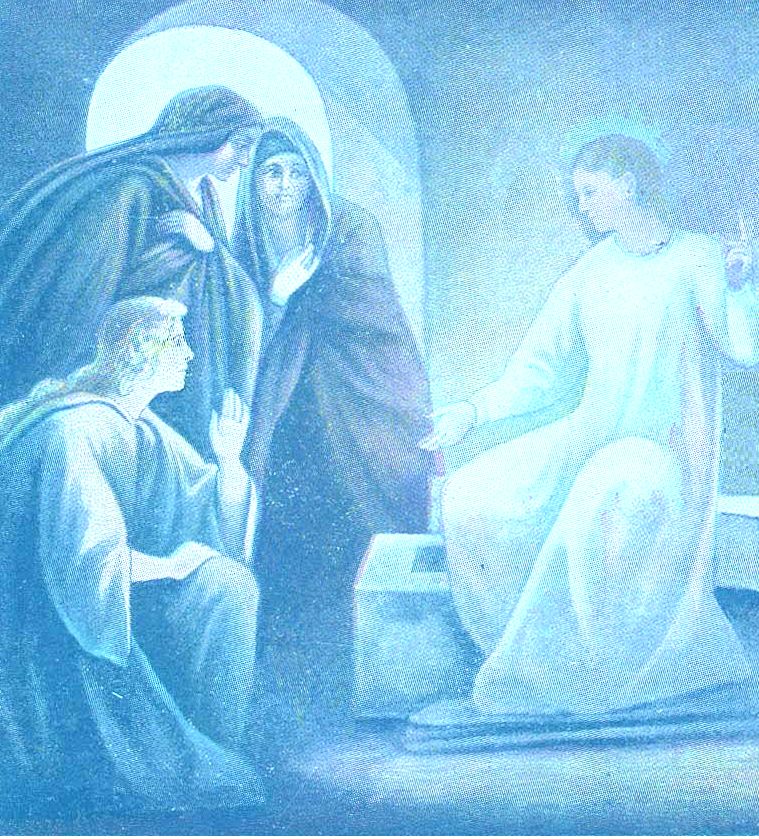
|
RE:* THE GATES OF HELL
*re: “on the subject of : regarding or concerning” (Merriam-Webster)
The tough boys of the 40's loved to assert themselves with four letter words which of course included “hell.” When the responsible mothers put a cake of soap in their mouths, it humbled a few of them. Have you ever wondered why they didn't use the equivalent for “hell”, such as “hades”, “gehenna”, or simply “grave.”
Jesus declared that “The gates of Hell ( pulai hāidou) shall not prevail against it (ou katischusousin autēs)” (Matthew 16:18, KJV).
“Hell” is an English expression that has been around a long while. It's from the Old English hel, helle, "nether world, abode of the dead, infernal regions," from Proto-Germanic *haljo "the underworld," literally "concealed place" (compared with Old Norse hellir "cave, cavern").
Jesus told the story of the rich man that died and was buried, but he “in HELL lift up his eyes, being in torments, and seeth Abraham afar off, and Lazarus in his bosom” (Luke 16:23, KJV). Both the rich man and Abraham are “dead” and “buried” but their souls are in existence in a place called “HELL.”
“Hell”, then, is simply the place for departed souls in death. Jesus went there when He was killed. His “soul” was not left in Hell (Acts 2:27). Hell was not the tomb cave where His flesh was but was a place for His soul. “His soul was not left in hell, neither his flesh did see corruption” (Acts 2:31, KJV). The word that Jesus uses in Matthew 16 is the place that the Greeks had coined as “Hades.”
“Hell” translates the Greek word “Hades” which according to Strong means, “properly unseen, that is, ...the place (state) of departed souls: - grave, hell.” The KJV translators thought of Hades as referring sometimes to the grave (1 Corinthians 15:55) where the Spirit somewhat quotes Hosea 13:14: “I will ransom them from the power of the grave (in Hebrew sheol H7585 1; in Greek LXX version HadesG86).” Although the KJV people had used “Hell” in Matthew 16, they use “grave” here.

Can you imagine a toughie exclaiming, “Grave! Grave!”?
When Jesus uses the expression “gates of hell”, He is not referring just to the tomb's cover. “Gate” in English means an "opening, entrance," Old English geat "gate, door, opening, passage, hinged framework barrier." In the Greek, Thayer likens the gates (puleG4439) to “a vast prison.” The expression refers to the barrier of death.
The good king Hezekiah is quoted in Isaiah 38:10, “I shall go to the gates of the grave[LXX:Hades]: I am deprived of the residue of my years.” The psalmist and Job speak of the “gates of death” (Psalms 9:13; 107:18; Job 38:17).
The picture is of death not stopping what Jesus and His disciples were talking about in Matthew 16:18.
What were they talking about? Jesus asked, “Whom do men say that I the Son of man am?”
Then He asks, “But whom do ye say that I am?” The subject obviously is “Who is Jesus?”
A path along which something moves is called a “track.” In conversation there are three tracks or paths for a subject or question. First, one can talk about himself (I, me, myself, we, our, ourselves). Second, one can talk about the one spoken to (you, yours). And third, one can talk about someone or something (it, they, them).
It is obvious that Jesus is not questioning about the second track, who Peter or the apostles were. One could say that Jesus was questioning about Himself and hence, the first track is the path. However, when we look at the context, it is more of the abstract of truth (e.g., “rock”) concerning Himself. Hence, the truth about Jesus is the prominent subject. Who is He?
The people's conclusion was in error. So, third person “it” was wrong.
Peter confesses who he understood Jesus is. The Son of God. This time, “it” is correct: “Jesus is the Son of God.”
If Jesus was interested in Peter as a “stone”, He would be leaving the path set; i.e., who Jesus was.
Jesus confesses on this truth His church would be built. “It” is the rock. The rock is “Jesus is the Son of God.”
The gates of hell would not prevail against “IT”; i.e., the rock of “Jesus being the Son of God.”
“The ekklēsia is built upon the Messiahship of her master, and death, the gates of Hades, will not prevail against her by keeping Him imprisoned.” (Robertson).
It is true that “Death” did not prevent the church being built. “And [Jesus] declared to be the Son of God with power, according to the spirit of holiness, by the resurrection from the dead” (Romans 1:4). If Jesus did not return from Hell, He would not be the Son of God. Death would have been victorious.
There are those that have Simon being Peter as the main thought. And there are those that put the church dramatically as the main thought and that it would exist forever. But the church is a product of “it” and is not the “it” in the context although we can say that it is a truth that the church will be raised along with the wicked. Therefore, the gates of hades will not prevent either from the judgment of God.
The important subject and question in this context is, “Who is Jesus?” God revealed to Peter whom Jesus was.
“No man can come to me, except the Father which hath sent me draw him: and I will raise him up at the last day. It is written in the prophets, And they shall be all taught of God. Every man therefore that hath heard, and hath learned of the Father, cometh unto me” (John 6:44,45).
1 SheolH7585 Grave: The place of the dead as an unknown place. [ms: las] [freq. 65] |kjv: grave, hell, pit| {H7585}; from Ancient Hebrew Lexicon of the Bible.

|